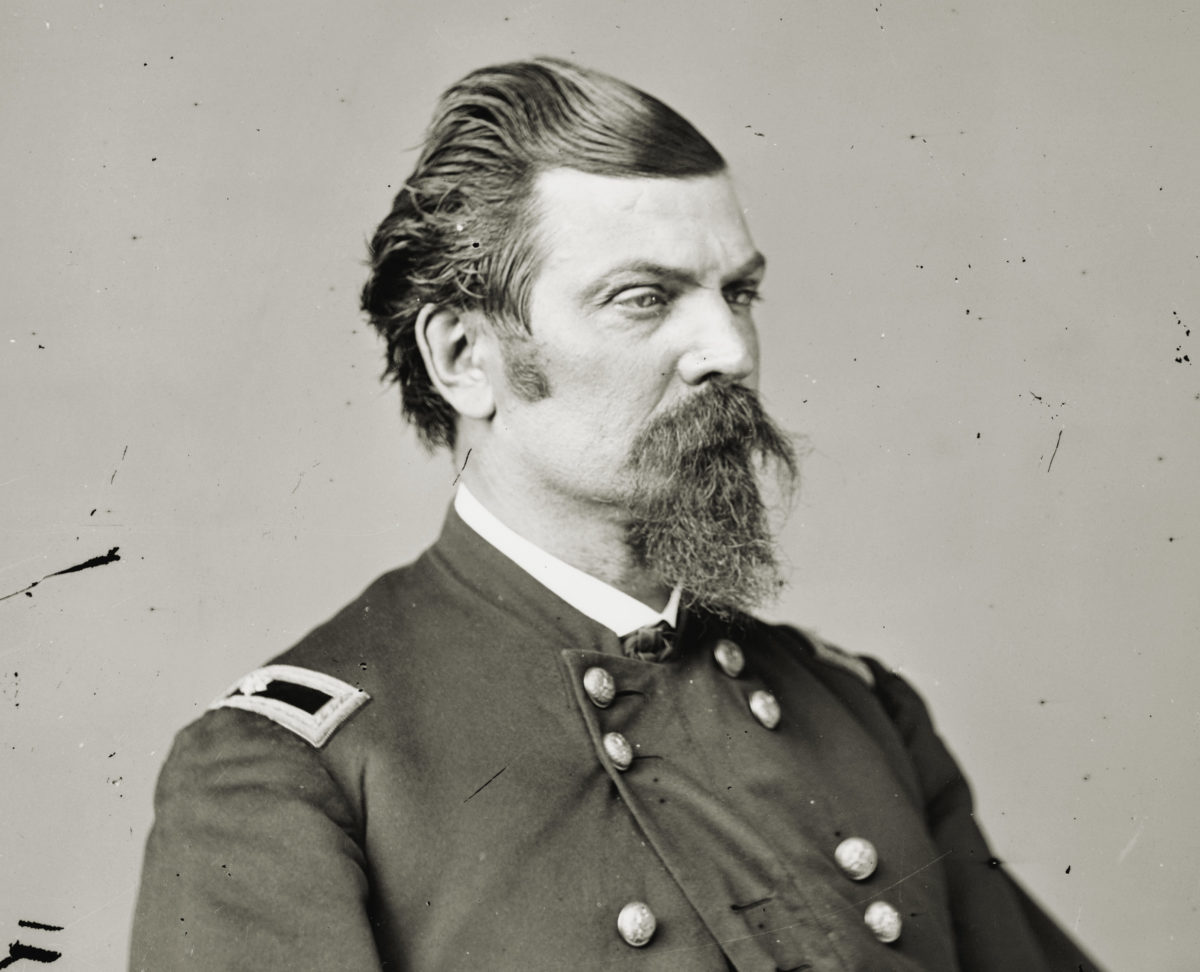Herman H. Heath was not, of course, the only Civil War general to flirt with the idea of serving the Confederacy before siding with the Union. He had even gone so far as to write President Jefferson Davis in 1861 offering to serve in a civil or military position. “[A]lthough a northern man by birth,” he told a friend, “I have never been anything but southern in my feelings.” Yet Heath not only fought as a Union cavalryman the entire war, he was wounded twice and brevetted brigadier general for “gallant and meritorious” service. Did he have a legitimate change of heart in 1861 or was he merely an opportunist willing to serve the side promising him the best chance for glory? We likely will never know.
Born in New York in 1823, Heath started a pro-Southern newspaper before the war while working as a clerk in Washington, D.C. After moving to Iowa, he began editing the Democratic newspaper Weekly North-West, and supported John C. Breckinridge during the 1860 presidential election. On April 9, 1861, Heath wrote to St. George Offutt in Montgomery, Ala., congratulating him for accepting a position with the Confederate government. “I, too, would have been there, where my heart ever is, had your president responded as promptly to me as my proffer of service was tendered to the new government,” he wrote. “Before I would march against my brothers of the South, I would suffer myself to be hanged on the first tree before the eyes of my own wife.”
By June, however, Heath was with the 1st Iowa Cavalry as a first lieutenant. In August 1862, he broke his left hip and had an elbow shattered during a skirmish against Confederate guerrillas at Clear Creek, Mo. Three months later, he joined Maj. Gen. Samuel R. Curtis’ staff, and in May 1863 became a major in the 7th Iowa Cavalry and the regiment’s colonel in May 1865. The 7th spent the war campaigning against American Indians in the Nebraska Territory and the Dakotas.
Though elected to the Nebraska Legislature in November 1866, Heath was still enlisted in the Army and couldn’t serve. But in January 1867, Andrew Johnson appointed him New Mexico Territory’s secretary of state, and in 1870, President Ulysses S. Grant nominated him as the territory’s marshal. Heath’s 1861 letter came back to haunt him, however. Found in Confederate archives, along with his business card, it had been turned over to the War Department and made its rounds in Congress. Heath claimed it was a forgery, but Grant was criticized in the papers for appointing Heath and other Confederate sympathizers to government positions out West and withdrew Heath’s nomination.

Heath left to pursue business enterprises in Lima, Peru. He became editor of the city’s first English newspaper and worked in the packing and meat preservation business. He would die in Lima on November 14, 1874, and is buried in an unmarked grave at the Cementerio Británico Antiguo Bellavista. Shrouded Veterans recently worked to have a U.S. government-issued veteran headstone crafted and sent to cemetery. Heath is the first Civil War general with a headstone installed in South America.






